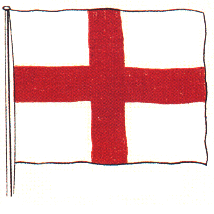You wouldn’t think it’d be so hard to volunteer your time to people. And yet, I was surprisingly difficult to sell my labor to people. I only begin this post, which will eventually be about what I am doing for the HUM 310, with what didn’t work because it made me really step back and think. We’re all humanities at a liberal arts college, which means we aren’t preparing for a specific job, not really. We’re preparing how to think and know how to adapt at a specific job. That is a liberal arts education’s strength and weakness. I started out as an IR major and then switched over to Anthropology because I wanted to work more on a humanistic level. Then I found Biological Anthropology and forensics and that whole world, and I was certain that was what I wanted to do. But several failed internship opportunities later, I’m studying Art History at a university in England with barely any experience beyond various odd jobs I’ve picked up to pay expenses. And it freaks me out a little bit. Senior year is rapidly approaching and with it the “real world.”
Recently Adrian Ramsay spoke to my British Politics class, and I really connected with what he was saying — be it out of desperation or genuine interest, I am still not sure. Adrian Ramsay is the leader of Norwich South’s Green Party Councilors, and he is currently running for an MP position. The idea of a third party getting a national seat is a bit baffling for us State-siders in our two party dominated world. In the States, a third party is nothing more than an annoyance that reminds democrats that they’ll lose votes if they don’t at least make shout-outs. But when I contacted the Norwich Green Party and got a chance to talk with its members, it seemed like there was actually a chance to make a difference. I talked to them about my research paper. They were eager to help and even a bit curious. After spending two years studying foreign policy and macro-systems, I was surprisingly relieving to find myself amongst a grass roots party system. Even in the rain and the sleet, these were people that were passionate about this and as we huddled around the kitchen eating vegan stew, everyone talked about how far they had travelled just to support an ideal and a man. I have no intention of soap boxing green politics. Rather, I have been given an opportunity to combine ethnographic work and my lost love of politics. If only there were some bones to study right? It was just so amazing to see politics on a personal level: no tv, no radio, just the man running for politics serving sandwiches and stew in his kitchen. Further, after all the work was done, the group all went out to eat Indian food in Norwich like a big, happy green family. I sadly didn’t bring any green, so I had to head home on the bus. I feel as though seeing them interact outside of the political work area is a critical aspect of how they interact with the community as a whole, and I hope to observe this next chance I get.
I was asked to go out with two other volunteers and go door to door and discuss green politics with people, test the waters as to a general base of support. The two guys I went out with were more interested in the political realm than the environmental one, which I thought was interesting, and they did not live in the Norwich area. My Watching the English sense was tingling. The thought of intruding in on these people and asking them such personal questions seemed like a disaster waiting to happen, yet it wasn’t. I even spoke with a woman about Green Politics with moderate success. People were eager to speak with us and talk about how they wanted local politics to change. It was only when we switched over to the national elections that people became uneasy. There is a large percentage of civil servants in Norwich, and they are scared. Scared of losing their jobs to a Tory government. I don’t blame them but at the same time, one cannot wallow a self-induced lack of efficacy. Don’t say you want to vote green, but vote Labor instead of green simply based on a fear.
The Green Party also brings up an interesting question: is it really an anti-party anymore? Many of the people I have spoken with have mentioned that it is an anti-party. Yet the Green Party operates within the set political system, in an attempt to change it from the inside. The Green Party has become significantly more efficient since its days in the early seventies, when it was nothing more than an interest group.
The majority of people I spoke with weren’t actually from the Norwich South area and would not be able to vote for Adrian. This seemed like an initial flaw in my research, yet it speaks to what Norwich represents to the greater Norfolk area. Norwich was once the second largest city in England, and it still commands immense cultural respect from the areas around it. Were the green party to win a seat here, it would most likely help to ignite a chain reaction. Each person counts, each person matters. But at the end of the day, I was also left with questions.
The Greens did not even have a leader up until recently, and yet it is a rapidly growing party. Does this speak to a shifting trend in politics, one that vears away from party hierarchy and arms-length membership? Why is the green party replacing labor seats? What does this say about the state of the local and national political structure and the potential cultural changes that are occurring within Norwich?
I find it rather corny to end with questions that I have not found the answers for yet, so I’m going to end with something else I observed in Norwich: doorways. Doorways in Norwich are fascinating. No one will contest that Norwich Cathedrals are stylistically beautiful. Even the buildings in the town vary from Edwardian, and what they call Victorian (do not get me started on that one). I am not saying every house is like that, there were definitely exceptions, but for the most part the houses were remarkably practical: single face, hints of neoclassical, maybe even a little bit of Elizabethan. From my understanding this has to do with bombings during WWII and population explosions, but I’ll have to do more research. My point is, they aren’t the prettiest of houses. The doors, however, have had an immense amount of time put into them. You can find columns, pilasters, intricate ivy workings and arches practically stolen from Gothic cathedrals. They were beautiful. As we have discussed, this is more than likely an expression of “castle-envy” and an attempt at blurring the lines between country house and house. There is a similar symptom in America, although we normally project this insecurity onto our modes of transportation or a TV, rather than a housing fixture. The English see land as the most important symbol of wealth, dating back to the vassal system. I’m not going on a communist rant, but why do we pick a much more nomadic, tangible and less subtle means of showing our cultural capital? And I end on a question anyway.
Cheers



